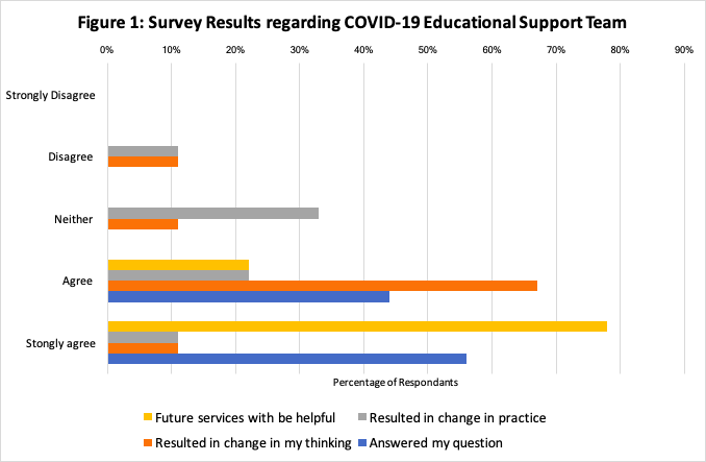Background: The COVID-19 pandemic magnified the already overwhelming task of staying up to date with the ever-growing clinical evidence. Supporting evidence-based practice is crucial to the learning environment (1). Addressing this challenge, our institution assembled a team of medical students, librarians, and clinicians (educational support team) to search and summarize clinical literature to answer clinical queries raised by frontline clinicians regarding COVID-19 care (2-5). Expanding the work of the educational support team, we developed the ASAP (Ask-Search-Appraise-Perform) curriculum to train fourth-year medical students to gather and appraise clinical literature and embed them into the educational support team. New clinical faculty joined the team, and clinical queries were expanded beyond COVID-19 content.
Purpose: The ASAP curriculum is a 4-week elective, targets fourth-year medical students, and offers workplace learning of evidence-based practice. Students are embedded into an educational support team serving frontline clinicians at a large, urban academic medical center. By the end of the curriculum, participants will be able to:1. Reframe clinical queries provided by frontline practitioners into focused, structured clinical questions appropriate for the literature review.2. Search for evidence in PubMed, preprint servers, and other sources relevant to inpatient care.3. Critically appraise and synthesize evidence in high-yield topics in inpatient care.4. Contribute to the creation, dissemination, and translation of new health care knowledge and best evidence to support clinical decision making at the point of care.
Description: From March through May 2020, 80 clinical questions from frontline clinicians were answered, and 325 articles were summarized. Assisted by clinical librarians, medical students analyzed, summarized, and synthesized published literature. The queries and article summaries were posted on a dedicated website. The clinical questions were viewed over 1,000 times, and the article summaries were viewed over 800 times. Exploratory survey data (response rate 40%) showed that 7/9 (77.8%) users were very satisfied with their synthesis, and 2/9 (22.2%) were satisfied. 100% of them agreed or strongly agreed that the synthesis answered their questions. 100% agreed or strongly agreed that a similar service would be useful beyond COVID-19 content (Figure 1).
Conclusions: The ASAP (Ask-Search-Appraise-Perform) clerkship aims to train fourth-year medical students to gather and appraise medical literature and embed students into an educational support team to deliver point-of-care clinical evidence to inpatient clinicians. This multidisciplinary educational initiative is the result of the active collaboration among librarians and hospitalist educators.

